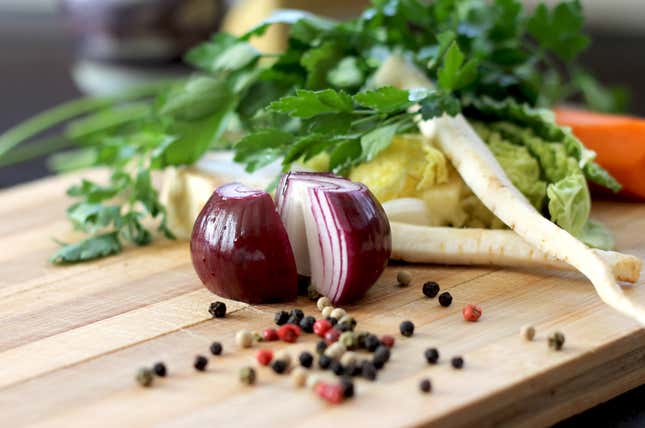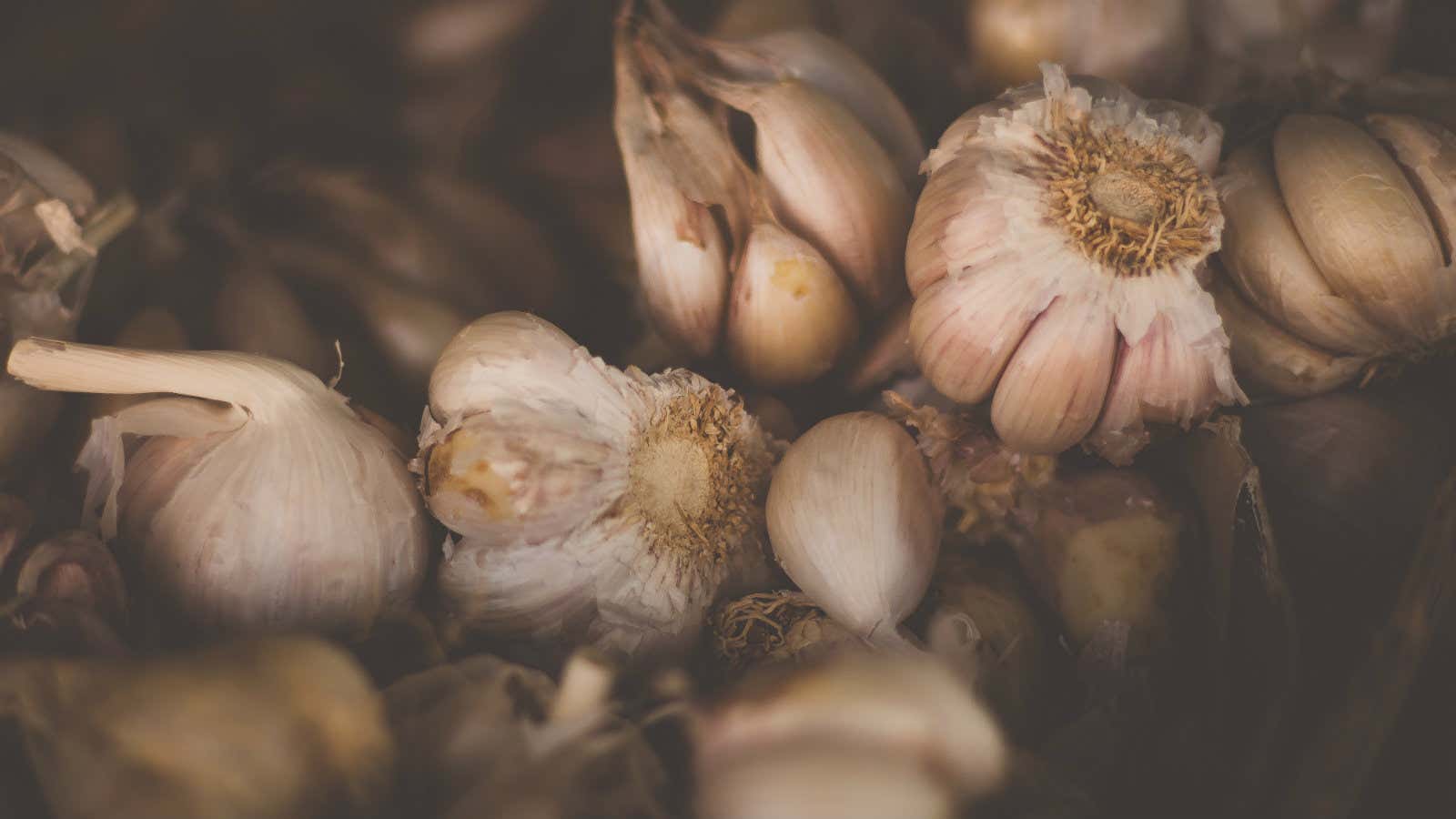What exactly is an aphrodisiac, aphrodisiac kya hai, aphrodisiac na enna, did you say? It’s any food that’s supposed to have a positive effect on your sex drive (no, it is not Viagra).
Whatever century you lived in, human beings have always dreamt of some love potion that would make you more confident, strong and, of course, instantly attractive.
In the West, when you say aphrodisiac, most people think of strawberries, chocolate, and champagne (though we are not in the West, we don’t mind these either). India has its own long tradition of sensual foods, and it turns out that many of the aphrodisiacs known in the ancient world were actually from India. The last chapter in the Kamasutra, India’s most famous handbook of love, is all about different plants and devices you can use to enhance your sex life.
It might surprise (and delight) you that many commonly-used ancient Indian aphrodisiacs are things you could find in your kitchen.
We asked Sandhya Mulchandani, a scholar of erotica in Indian culture and the author of Kama Sutra for Women, to decipher the instructions. She said the Kamasutra has some ground rules.
1. Don’t try an aphrodisiac if
– it seems dubious,
– you suspect it can cause problems,
– it is obtained from killing an animal.
According to the Kamasutra, this can put you in touch with negative or impure things. But practically, too, we think this is good advice.
2. Go by the spirit of the Kamasutra’s advice, not the letter. Especially since, as Sandhya Mulchandani says, “some of the aphrodisiacs mentioned are really weird.” The foods that the Kamasutra recommends were to be incorporated into your routine diet as part of a generally healthy sex life. They were foods that could alter the various balances in the body to increase vitality and serenity, heighten or lower temperature and sensitivity, or alter the tastes of sexual fluids.
Ok then, let’s go check out those ancient Indian aphrodisiacs in your kitchen!
Milk
According to the Kamasutra, good old-fashioned milk and sugar are the champions of all aphrodisiacs (which makes suhaag raat scenes in Bollywood movies fully sanskaari). Milk was thought of as being able to dramatically increase strength and sexual vigour, and almost all of the aphrodisiac recipes in the Kamasutra are based on milk, sugar, and honey. Even today, in parts of India, brides give bridegrooms a mixture of milk and almonds on the suhaag rant—night of the wedding— to help with performance.
Then there are fundas from the vajikarana (from vaji, or stallion) branch of Ayurveda, which had a very relaxed attitude to aphrodisiacs. According to the vajikarana, anything made from milk, honey, sugar, and sesame was an effective aphrodisiac, and panchamritam, a mixture made of milk, yoghurt, sugar, honey, and butter, was supposed to increase fertility and stamina (isn’t that what they give us in temples?). All milk-based potions are quite sweet and simple, except when they are not: like one tip in the Kamasutra which says: “Drink milk with sugar/ Or better still, testicles of a goat or ram/ Boiled in it.”
Saffron
If you think we Indians are obsessed with milk, let us introduce you to Egypt’s famed queen Cleopatra who used to bathe in milk. She mixed it with kesar (saffron) because the Egyptians believed it had aphrodisiac properties.
The Kamasutra shares Cleopatra’s belief in saffron. In addition to having a pleasing smell, saffron taken in hot milk is supposed to have deeply calming and soothing effects on both men and women, leading to a serene environment.
Scientific experiments have also shown that saffron can increase sperm motility in men, which promotes male fertility.
Asparagus
You may think asparagus is an angrezi vegetable served in fancy restaurants, but the fact is asparagus has lasted an impressively long time, having been considered an aphrodisiac by the ancients around the world. The Kamasutra recommends shatavari (wild asparagus) paste ahead of a big night. The Greeks, too, mentioned its aphrodisiac qualities in their love poetry. In addition to its stimulant properties, it helps reduce excess ammonia (which is said to cause fatigue) in the body.

Garlic
Garlic? Aphrodisiac? Nahin! Arre, haan bhai haan (No! Yes oh yes).
Found in every kitchen, garlic is often pegged as a ‘hot’ herb that makes you sexually aggressive (it does have diallyl disulfide, which increases testosterone levels). People have believed for years that it enhances sexual performance, and celibate communities like certain Buddhist sects avoid it. Chomping down on some garlic before a special night does seem likely to have to the ultra (opposite) effect though. Should we eat some garlic and then brush our teeth like mad, we wonder? Will a mint cancel the effect? Sadly, the scriptures are silent on this matter, so we’re on our own here.
Ashwagandha
At last! An aphrodisiac with a name that sounds like an apsara (celestial nymph). You can reasonably imagine young men and women from ancient times going on desperate quests for the mysterious ashwagandha. But sadly (for our fancies) and happily (for those we fancy), it is another commonly found plant. Ashwagandha (also known as winter cherry and poison gooseberry, eek) belongs to the nightshade family and its roots have always been used for medicinal purposes.
Ashwagandha, from Sanskrit, translates to “the smell of a horse.” Apparently so named because its roots smell like horse urine. Many people also believe that ashwagandha gives the user the strength and stamina of a horse, which is an exaggeration, of course, but a pleasant idea.
Ashwagandha is widely reputed for its aphrodisiac properties and is also known to play a role in increasing male fertility. It has a strong and bitter taste, so it’s easier to consume it mixed in or along with something else, like ghee. Like sex, it is different with different food partners: when used with shatavari, ashwagandha can improve male fertility, and, when consumed with milk and a pinch of nutmeg, it serves both as an aphrodisiac and an aid to a good night’s sleep.
Methi (Fenugreek)
According to the ancients, ashwagandha may do more for men, but women should turn to fenugreek (methi). Methi seeds are said to help in the synthesis of various sex hormones that are responsible for breast enlargement in women. The phytoestrogen that these seeds contain supposedly results in enlargement of the bust, while also boosting sex drive.
Nutmeg (jaiphal)
Nutmeg is an international aphrodisiac, feted across the ancient world from the Middle East to Malaysia. A German mystic is said to have noted wisely: “When a human being eats nutmeg it opens up his heart.” Which makes us think a little about a bizarre German folk myth about a girl who eats a nutmeg, poops it out whole, crushes it, and feeds it secretly to whoever she wants to fall madly for her. Nutmeg (when consumed the normal way, not the German way) can also help improve sleep quality, so jaiphal ki jai. Too much nutmeg can lead to side effects such as nausea and dizziness, so careful.
Kira jari
If methi, garlic, and jaiphal seem like too much khayali pulao (and you want your aphrodisiacs to have exotic feels), you may want to consider a fungus called kira jari, found on caterpillar larvae (but that is not because it is a keeda jadi booti). In Nepal, China, and Tibet, it’s been collected for years and sold at high prices. It’s so hugely popular for its believed aphrodisiac properties that it has now become a booming industry—but you have to climb up 5,000 feet and crawl around in the snow to find the caterpillar, so it’s no joke. When the demand for kira jari increased, more people started to notice and collect it, and it was discovered that it exists in Bemni, Uttaranchal, as well, leading to furious competition in that town.
Recipe for aphrodisiac from the Kamasutra:
Smash together equal parts of cinnamon and green nutmeg. Add double the quantity of fresh ginger root. Add nine beans of black pepper, two to three cloves, and a teaspoon of saffron. Allow the mixture to infuse for three days in 250g of alcohol at 60 degrees. When this process is complete, add 25mg of ginseng root. Consume three teaspoons of this aphrodisiac 30 minutes before every meal.
One of the things we noticed during research was that aphrodisiacs seem to fall into two categories:
Category 1, extremely common and inexpensive.
Category 2, ridiculously costly and impossible to get.
Or, as Billy Joel sang, “Darling I don’t know why I go to extremes.”
Is there a difference in quality because of difference in price though? Not that we could find. Maybe with Category 1, people feel reassured by the comfort of everyday things, and this frees their sexual spirit. Perhaps with Category 2 people feel so excited about consuming something so exotic they feel ready for pleasure immediately.
And maybe it’s always just the imagination that we’re really feeding.
This post first appeared on AgentsofIshq.com. We welcome your comments at ideas.india@qz.com.
